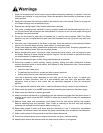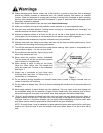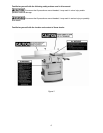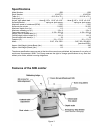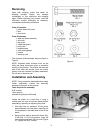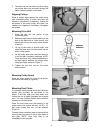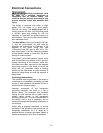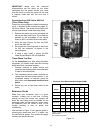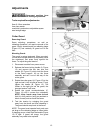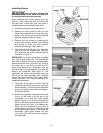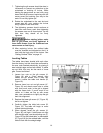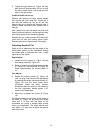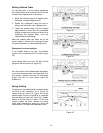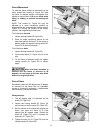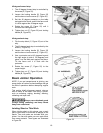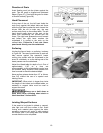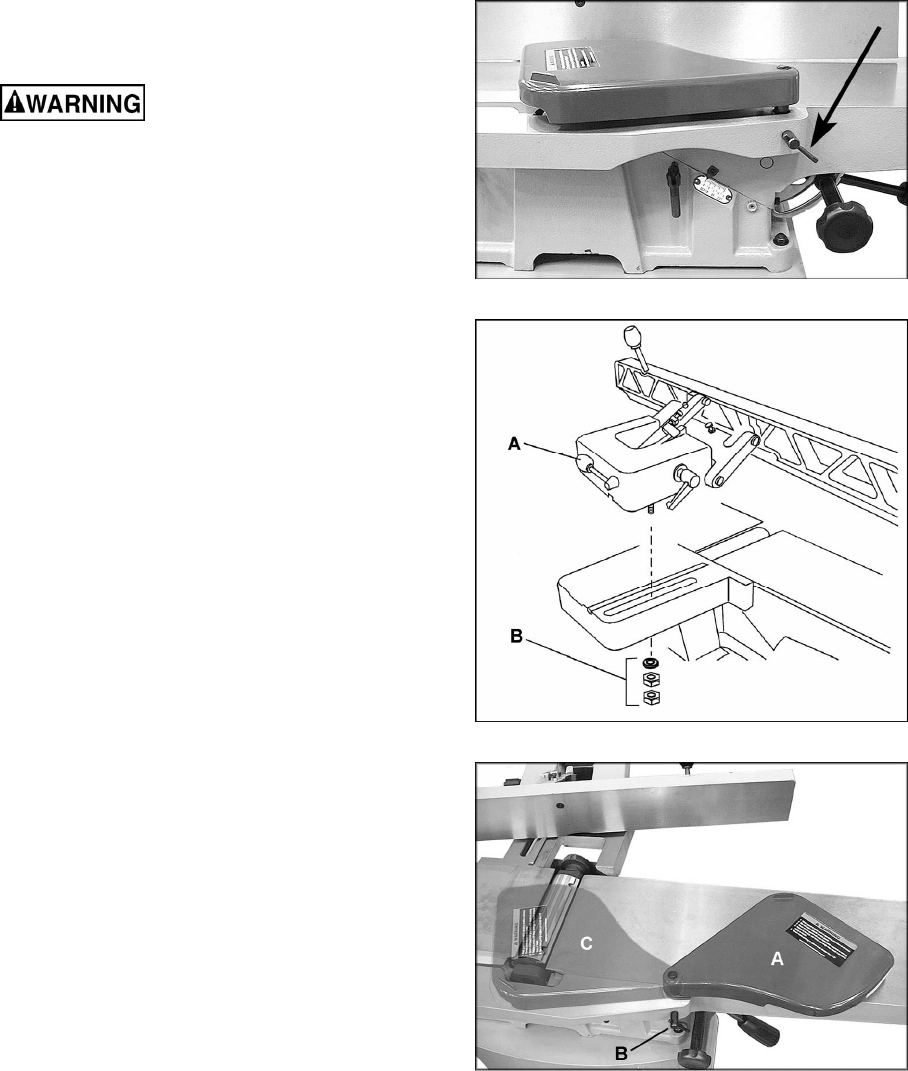
12
Adjustments
Disconnect machine from
power source before making adjustments.
Tools required for adjustments:
8mm & 12mm wrenches
4mm hex wrench
machinist's protractor or adjustable square
steel straight edge
Cutter Guard
Removing Guard:
Some adjusting procedures, as well as
rabbeting operations, will require removal of the
guard. Simply loosen handle on rabbeting ledge
(Figure 12) and vertically lift guard out of the
hole.
Mounting Guard:
The guard is spring tensioned. When mounted,
it must have enough tension to completely cover
the cutterhead, and press firmly against the
fence. To adjust the guard tension:
1. Disconnect machine from power source.
2. Release the fence locking handle (A, Figure
13) and remove the two hex nuts and
washer (B, Figure 13) which hold the fence
to the fence support. Lift up the fence
assembly and set it out of the way of the
cutter guard.
3. Rotate the cutter guard (A, Figure 13) to the
right and set it into its hole as shown. Firmly
tighten the handle (B, Figure 13). The
farther to the right you set the guard, the
stronger tension it will have.
4. Rotate the guard counterclockwise (C,
Figure 14) until it covers the cutterhead.
NOTE: Keep hands away from knives!
Hold it in this position (using an assistant or
block of wood) and re-mount the fence.
5. Test the tension by swinging the guard
away from the fence and then releasing it.
The guard should snap back to the fence.
NOTE: The guard must operate freely and must
not drag on the rabbeting ledge or infeed table.
If dragging occurs, check that the handle (Figure
12) is tight. If guard still drags, the guard
assembly may need to be replaced.
Figure 12
Figure 13
Figure 14



